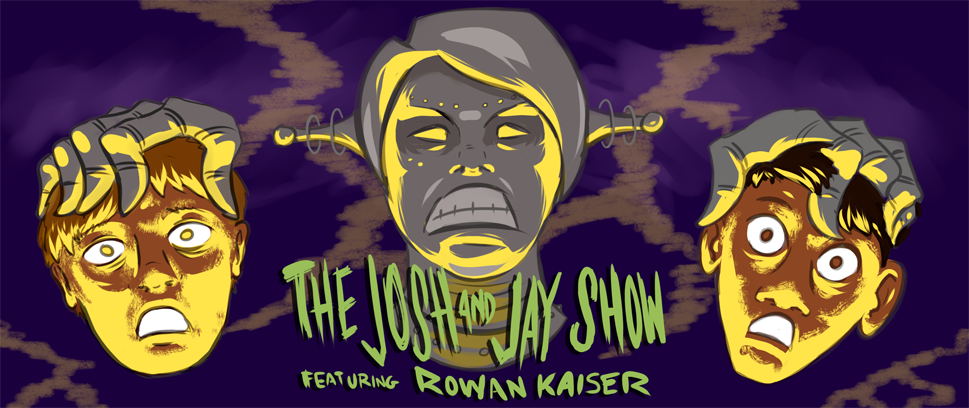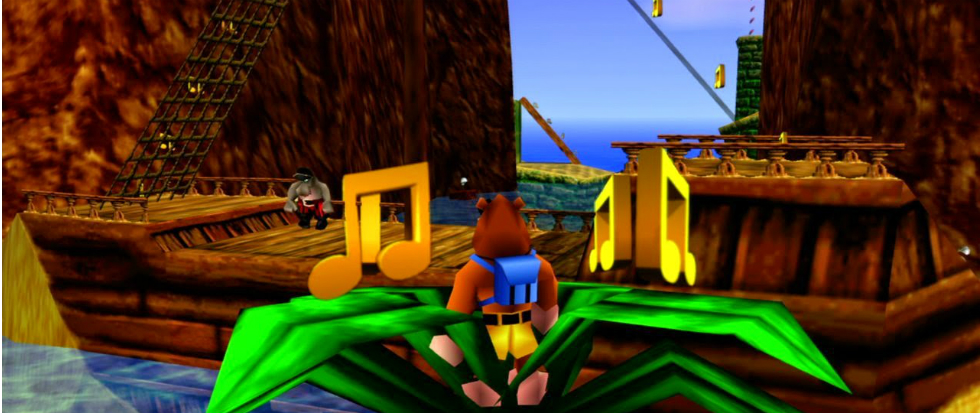
Conformity in an Open World
“In our postmodern, however we call them, societies, we are obliged to enjoy. Enjoyment becomes a kind of a weird, perverted duty.” Slavoj Žižek, The Pervert’s Guide to Ideology
Modern open-world games—known for their nonlinear structure, sizable environments, and seemingly limitless tasks and things—might fulfill a human need for enjoyment, but they also ask for a commitment to gluttony. This observation is more relevant than ever as the allure of the open world has taken over innumerable hours of people’s lives in recent games such as The Legend of Zelda: Breath of the Wild, Horizon Zero Dawn, and The Witcher 3.
These games (and others) seem to inspire, in both players and critics, a type of ideology that suggests great game design must follow two maxims: (1) more is better and (2) freedom is yours. These two concepts complete each other. The more stuff you can see, do, and collect in a game, the more hours you can play and thus the more potential enjoyment you can attain.
When we consider contemporary society, it’s unsurprising so many individuals would desire a sense of freedom in a virtual world. In the United States specifically, it’s not uncommon for people to feel powerless and caught in the middle of something too big to overcome. U.S. politics has reached a peak of polarization, and we seem unable to reach across the aisle to get things done for the common good (see Congress’ health care legislation failures). The gap between the rich and the poor continues to increase, with low wages and a high cost of living keeping many everyday citizens stuck in place. Why wouldn’t a game that says “Hey, you can do whatever you want in this giant world” be enticing?
But we have to remember the open world is nothing new in pop video games. The framework has been around for more than three decades. One of the biggest 1980s open-world games, The Legend of Zelda, is a direct ancestor of Breath of the Wild. The Fallout series, which started in 1997, is well known for encouraging players to wander around and stumble upon various locations with different paths to take. And 2001’s Grand Theft Auto III popularized the possibility of running wild in a three-dimensional city, ignoring story missions at one’s whim.
Looking into the past can show how misleading the hype about modern open worlds is, how these games might fail to satisfy one’s lust for freedom. Breath of the Wild, hailed by some as the greatest game ever within weeks of its release (how’s that for a rapid-fire, all-encompassing conclusion?), and Horizon Zero Dawn, which drew less but still considerable praise from audiences, could compete for a Most Blandly Heroic Protagonist Award. People often imply the worlds of these games are vibrant and full of possibilities, but in both cases you are a predestined savior of the lands you scour, just like you were in the The Legend of Zelda. Such one-dimensional affairs don’t seem that open or dynamic compared to the destinies available in the first two Fallout games. Even the materialistic Grand Theft Auto III has more potential for philosophical consideration (granted, it might be as juvenile as “To hit or not to hit the pedestrian”).
The Witcher 3 at least has dilemmas to grapple with and offers an opportunity to leave behind an impactful behavioral pattern driven by moral values. Yet similar to its contemporaries, so much of that game’s open world is committed to mundanity (such as the isomorphic monster nests) and what amounts to micromanagement of an unwieldy inventory. In The Legend of Zelda, every item seems to carry some significance, but good luck caring about all the luggage in The Witcher 3 or, for that matter, the incessantly disposable crap in Breath of the Wild (the latter reminds one of how the quality of many goods in the real world has plummeted over the years).
Most modern open worlds, through their utter dedication to quantity, lack the editing needed to resemble a focused experience (Westerado: Double Barreled being a notable exception) or to prevent the proceedings from becoming a cycle of déjà vu. As I went from shrine to shrine in Breath of the Wild, I was impressed by some of the puzzle solutions, but I was equally struck by how similar the places looked, how reminiscent certain challenges were of others, and how monotonous the messages were after I finished the trials. As I pursued mission after mission in Horizon Zero Dawn, I enjoyed how I became more adept with the bow, but at the same time, I couldn’t find any lasting significance in, say, taking down another set of bandits. The absence of moral discipline or consequences in these games only compounded such seen-it-all-before feelings.
It just seems the gaming world should be completely exhausted by the open-world trend by now. Consider the hours upon hours of attention paid to these works. Sometimes a negative opinion about an open-world game will be shot down with something to the effect of “Sounds like you didn’t spend enough time with it.” It’s a counterpoint that speaks to an obligation to immerse one’s self in something, and in the case of an open-world game, that immersion is seen as inherently superior due to an emphasis on discovery and free will. If you don’t buy into the immersion, if you don’t try to see everything the world has to offer, your perspective can be construed as limited, even illegitimate.
At that point, you might feel the pressure to revisit a particular virtual world and enjoy it the way you’re supposed to. The open-world ideology says you should be a consumer and love the freedom to consume whatever is put in front of you—to admire art the way you would a buffet.




